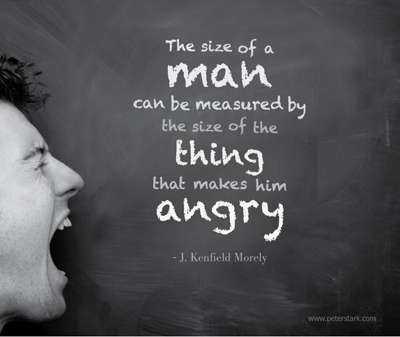Communication, Leadership
8 Practices of Emotionally Intelligent Leaders
As consultants, we often coach executives to help them build even stronger relationships with their bosses, peers, and direct reports. One of the most common reasons we’re called to work with executives is in the area of understanding and managing their emotions. Here are some real life examples:
The executive…
- Doesn’t listen
- Doesn’t effectively read the emotions of others
- Responds in a way that comes across as disrespectful, belittling or angry
- Tells people that how they feel isn’t as important as the job they need to do
- Make statements like, “I can be nice or I can tell the truth”
- Doesn’t know when to shut up and keeps on talking even when it’s obvious they aren’t achieving their goal
- Sends emotionally charged emails and copies multiple recipients so numerous people can verify at the same instant that they lack emotional intelligence
- Is surprised when someone finally tells them that their communication style is inappropriate or offensive
- Rejects feedback and blames their behavior on others
The challenge is that some incredibly bright and successful leaders exhibit these types of behaviors. In fact, almost always, the leaders we coach who exhibit these behaviors almost always produce extraordinary results in their areas of influence. If a leader exhibited the behaviors listed above and didn’t produce positive results, they would most likely be fired.
Emotions are a big part of our personal and professional lives. Everyone communicates their emotions, even when they communicate nonverbally. To tell someone they should not feel and express emotions at work is wrong and would actually be asking them to do something that’s impossible.
In 1990, John Mayer of the University of New Hampshire and Peter Salovey of Yale coined the phrase “emotional intelligence” (EQ) and defined it as the ability to monitor one’s own and others’ feelings and emotions, to discriminate among them, and to use this information to guide one’s thinking and actions.”
To be effective at building relationships where people are motivated to follow them, leaders need to be able to understand and control their emotions, understand the emotions of others, and be able to adapt their communication style in order to achieve their goals.

The following eight tips will help you build even stronger relationships by increasing control of your own emotions, understanding the emotions of others and, ultimately, become even more successful in achieving your goals:
- Thank people who have the guts to give you feedback: When you have a reputation for being a harsh communicator, most people don’t feel confident in directly giving you feedback. So, instead of telling you how they feel about your communication style, they usually go to Human Resources, the CEO or your boss. If someone has the courage to give you feedback, listen to the feedback and thank them.
- Apologize: When you receive feedback that your communication style wasn’t well received, the best thing to do is to genuinely apologize. It takes confidence to be able to say, “I was given feedback that my communication in today’s meeting was perceived as disrespectful and abrasive. That was not my goal and for that I apologize and commit to not doing that again.” If you’re true to your word and never exhibit that behavior again, you can build an even stronger relationship.
- Don’t rely on the ‘either/or’ solution: People who don’t appreciate or agree with feedback they receive regarding their behavior prefer the ‘either or’ solution in life. It works like this. The leader says, “Fine! I can either be really nice so everyone is happy with my communication style, or I can produce results.” What’s really needed is a leader who can communicate in a respectful way and produce the necessary results.
- Clarify your long-term goal: Is your goal to be a great leader who builds strong relationships and achieves great results? If it is, you’ll need to change your communication style. I worked with one leader who said recently, “I don’t care how I’m coming across. I’m telling the truth. If people don’t like my communication style, they can leave.” With this leader, I am convinced that if anyone who reported to him is ever asked to give his eulogy, they will have to bite their tongue not to say, “He was one of the most disrespectful and mean asses I’ve ever worked with.”
- Don’t communicate when you’re angry, frustrated, or upset: Wait until the intensity of your emotion has subsided. This might take 5 minutes, it could take a day, or maybe even a week. Unless you can build relationships rather than tear them down when communicating while angry or upset, it’ll be better to wait for a time when you’re in control of your emotions. This also means saving emails as drafts and rereading at a later time before you hit the send button.
- Take action: If enough people tell you that you have a tail, you need to turn around and take a look. Take action on what you hear and make changes. You can work with a coach, you can attend communication skills training, you can decide that you will change your communication style, etc. It starts with a decision to change. Once you make the decision to change, you’ll be able to exhibit different behaviors.
- Appoint or hire a coach: You can hire an executive coach and, almost always, they’ll help you develop solutions to improve your communication style. Or, you can get help from a colleague. Feedback from someone who observes you daily can be even more helpful in discussing what you’re doing well and where you have opportunities for improvement.
- Ask for feedback: The only way you’ll know if you’re heading in the right direction is to ask people for feedback. Ask people how they feel about the topics they bring up to better understand their emotions and then ask for feedback about how your communication style is perceived by others.
It doesn’t matter how smart you are, or how much you produce. Ultimately, to be successful as a leader, you need to demonstrate your IQ and EQ on a daily basis. Putting these eight tips into practice will help you become an even stronger, more respected leader–the kind of leader people want to align with and follow.









Leave a reply